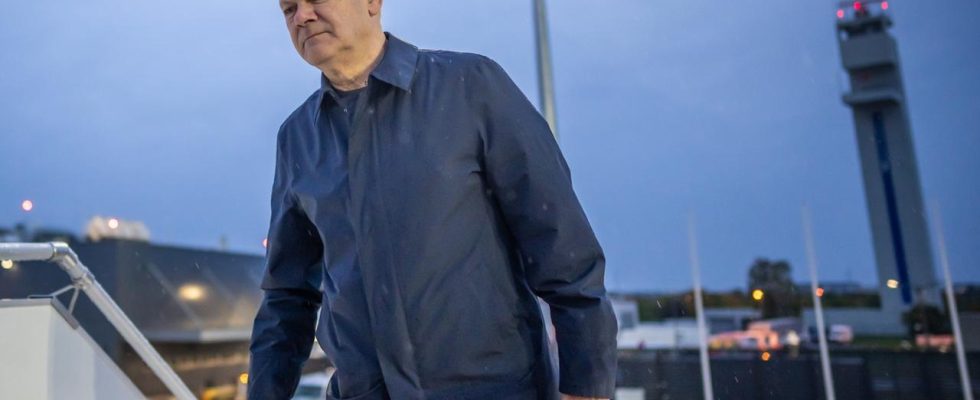Chancellor Scholz has set off on another trip to Africa. He wants to establish further economic relationships in Nigeria and Ghana. His first stop in Abuja is specifically about natural gas.
Chancellor Scholz is on a trip to Africa for the third time in his term of office. The first destination of the three-day trip is Nigeria’s capital Abuja. In the continent’s most populous and economically strongest country, the main focus is on expanding cooperation in the energy sector. In an interview, the Chancellor made it clear that he would also like to see the import of natural gas in addition to the existing oil imports.
Nigeria has the largest gas reserves in Africa, Scholz told the Nigerian newspaper “The Punch”. “German companies have an interest in gas supplies from Nigeria and look forward to working with Nigerian gas companies.” Germany is also relying on joint initiatives to advance the production of hydrogen as an energy source of the future.
Other desired partners in West Africa
Gas supplies had already played a prominent role on the Chancellor’s first trip to Africa last year. In Senegal, Scholz had offered German participation in the development of gas fields off the coast of the West African country. This was sharply criticized by climate activists because it is a fossil fuel that generates gases that are harmful to the climate. The federal government argues that gas is still needed for the transition phase to renewable energies.
With a view to his current visit to Nigeria, Scholz emphasized in an interview with “The Punch” that the country is a key partner for Germany, both politically and economically. In addition to the energy sector, he also sees potential for increased cooperation in other sectors, such as migration and security.
Nigeria and West Africa
Nigeria is one of the West African states that have large reserves of gold, oil, natural gas and other mineral resources. Migration and smuggling routes run through the area between the Sahara desert and the Gulf of Guinea on the Atlantic. The entire region is now one of the largest hotbeds of Islamist terror in the world.
Nigeria itself, with its 220 million inhabitants, has proven to be one of the most stable democracies in the coup-ravaged region since the end of a military dictatorship in 1999. But the country is slipping further and further into a dangerous mix of economic crisis and ever-worsening uncertainty. In the northeast, the state has had limited success in the fight against Islamist terrorist groups such as Boko Haram for over a decade.
According to the UN, almost 3.5 million people are on the run within the country, and 300,000 Nigerian refugees are in the neighboring countries of Niger and Cameroon. The economic crisis with the highest inflation in almost 20 years is making the situation worse. Experts warn of more migration.
Between January and September of this year, more than 1,800 initial asylum applications were submitted by Nigerians in Germany. The recognition rate is comparatively low. Nigeria is one of the countries with which Chancellor Scholz wants to facilitate the return of unrecognized asylum seekers through agreements. The EU is currently negotiating this with the country.
Chancellor sees many Investment areas
Nigeria is currently the second largest trading partner in sub-Saharan Africa, with German exports worth one billion euros in 2022. German direct investments in Nigeria amounted to 150 million euros in 2021, said Scholz. He named infrastructure, energy, agriculture, mineral resources, communication technologies, transport and logistics as areas for German investments. Scholz will be accompanied by a business delegation. After talks in Abuja and the Nigerian economic metropolis of Lagos, the Chancellor wants to travel on to Ghana.
The Chancellor’s renewed trip to Africa is part of the federal government’s strategy to seek new alliances in economic and energy policy. It is also the result of the Russian war of aggression on Ukraine, which revealed Germany’s dependencies on individual countries.

